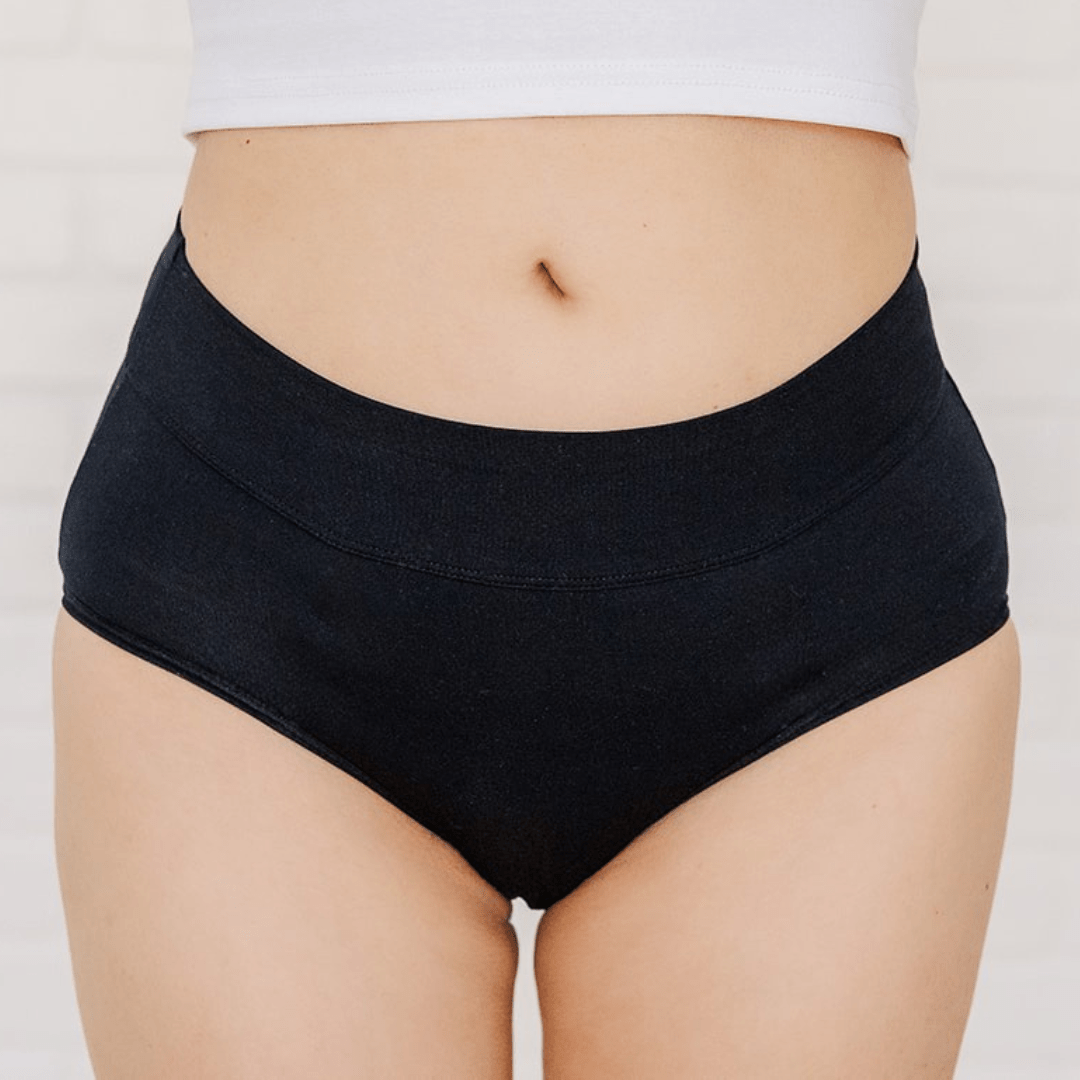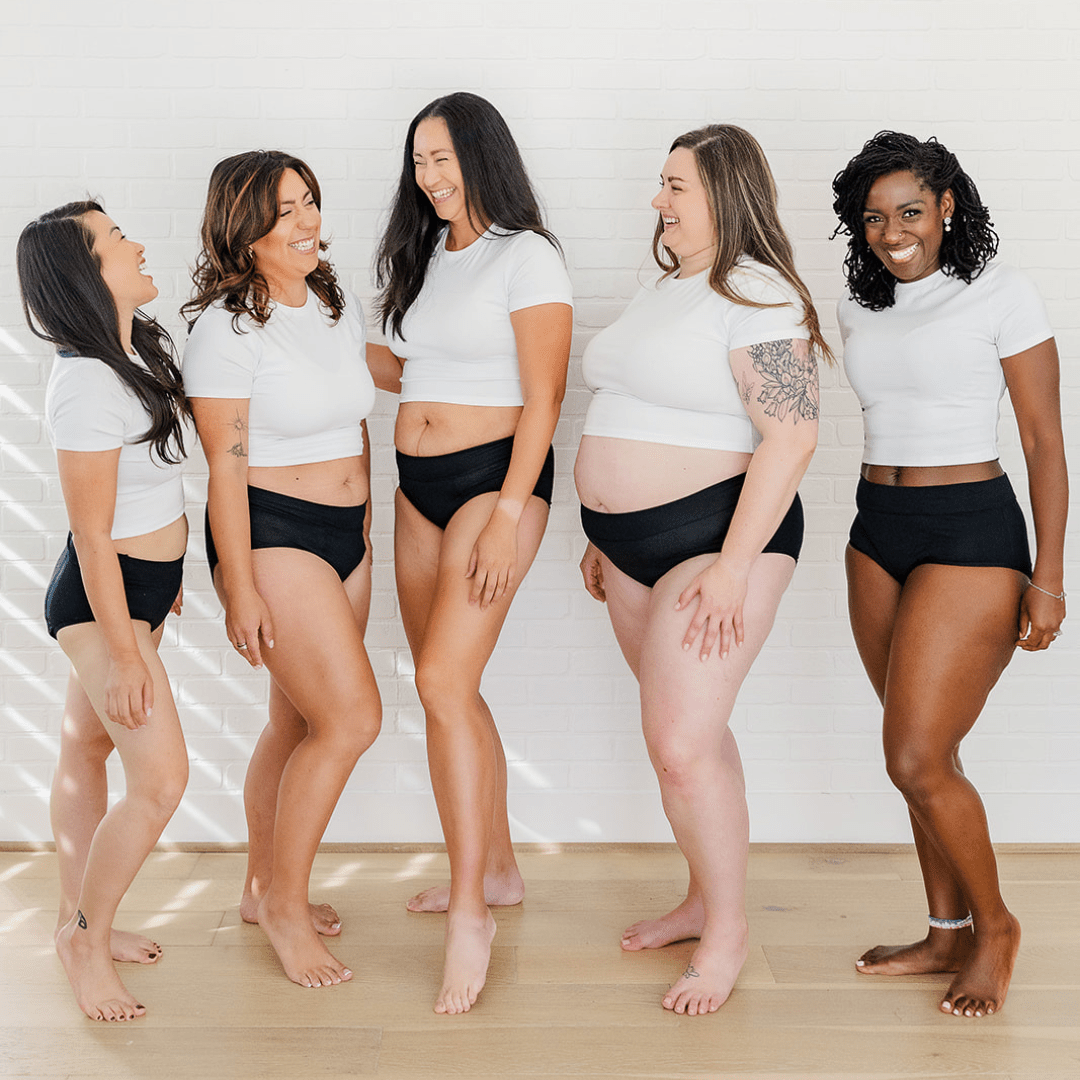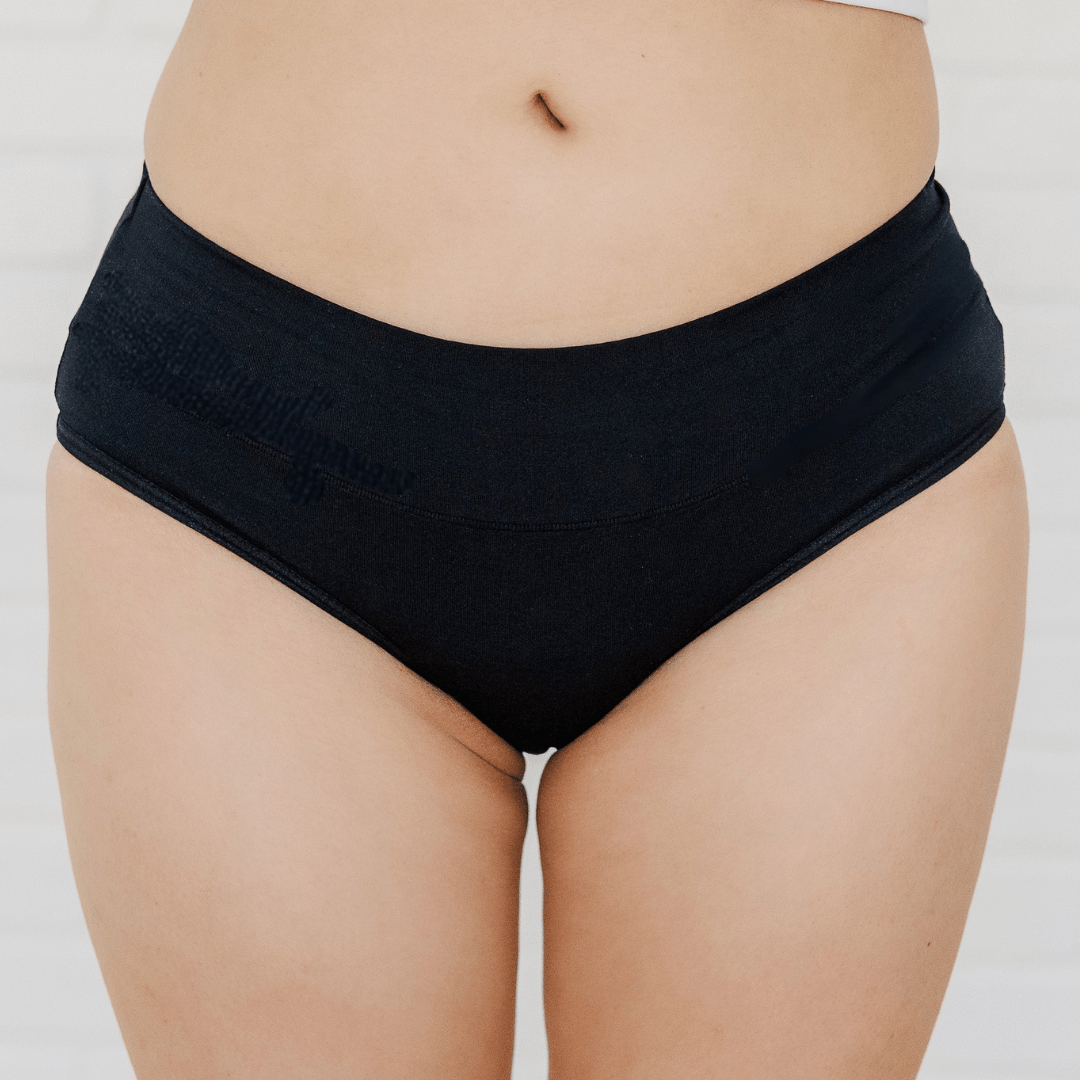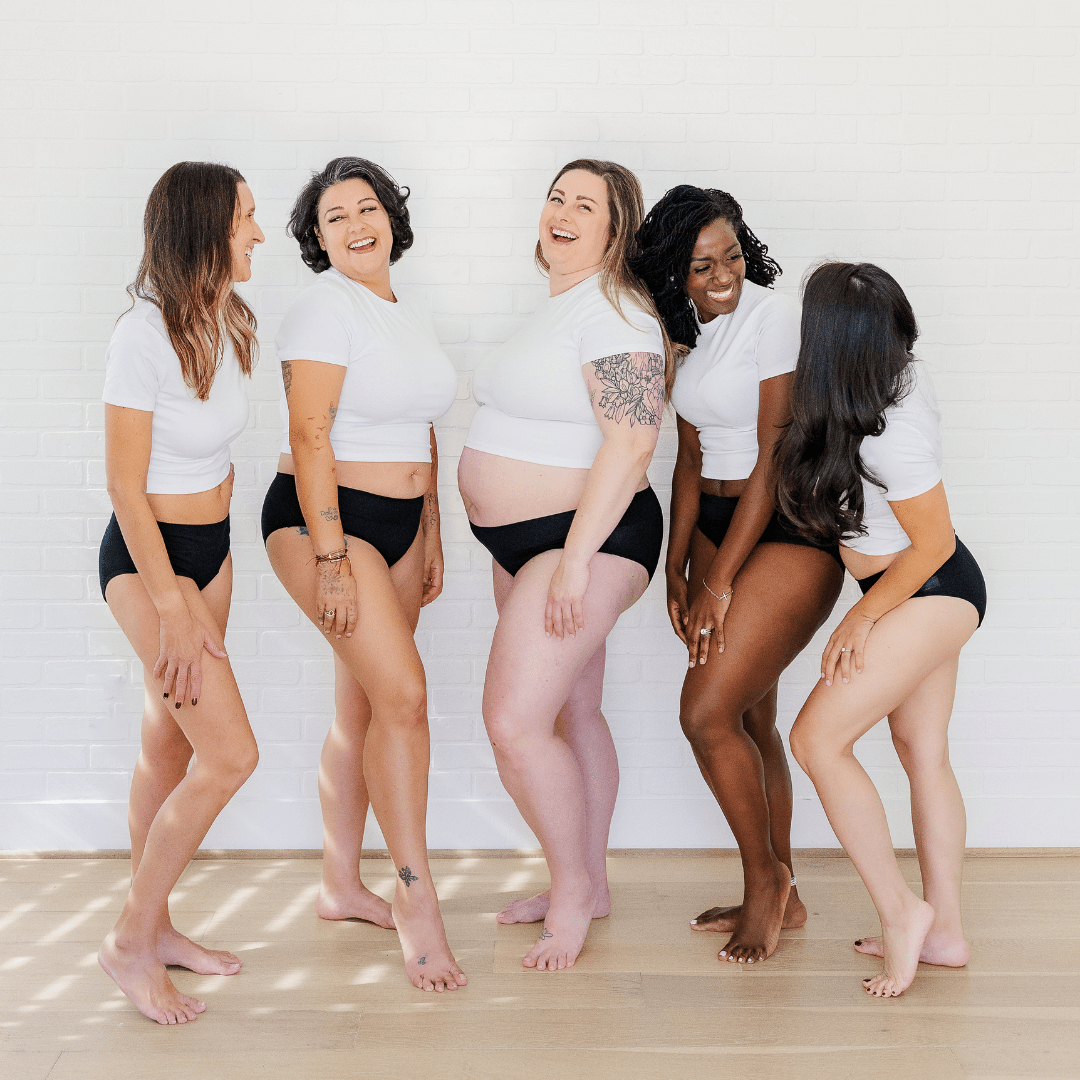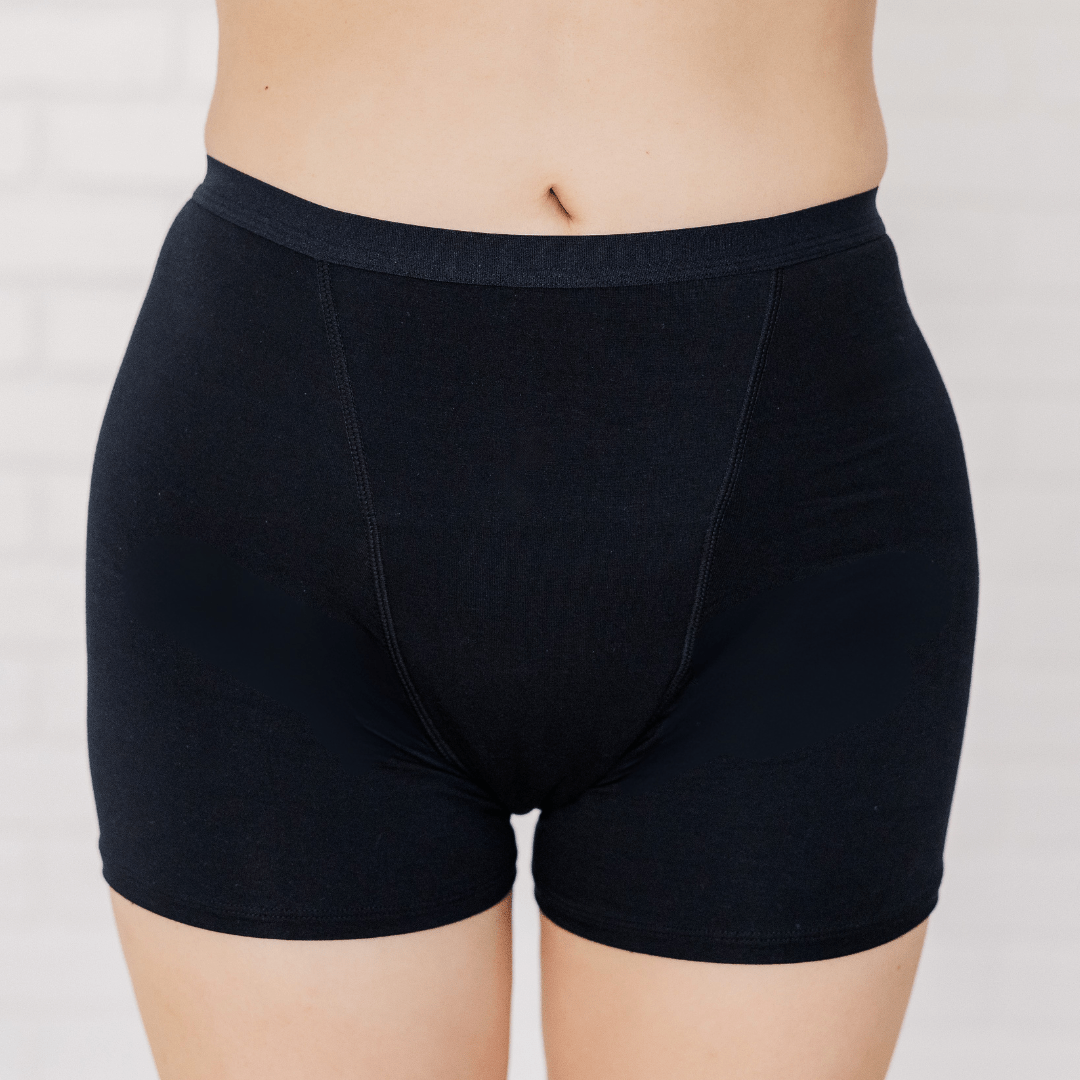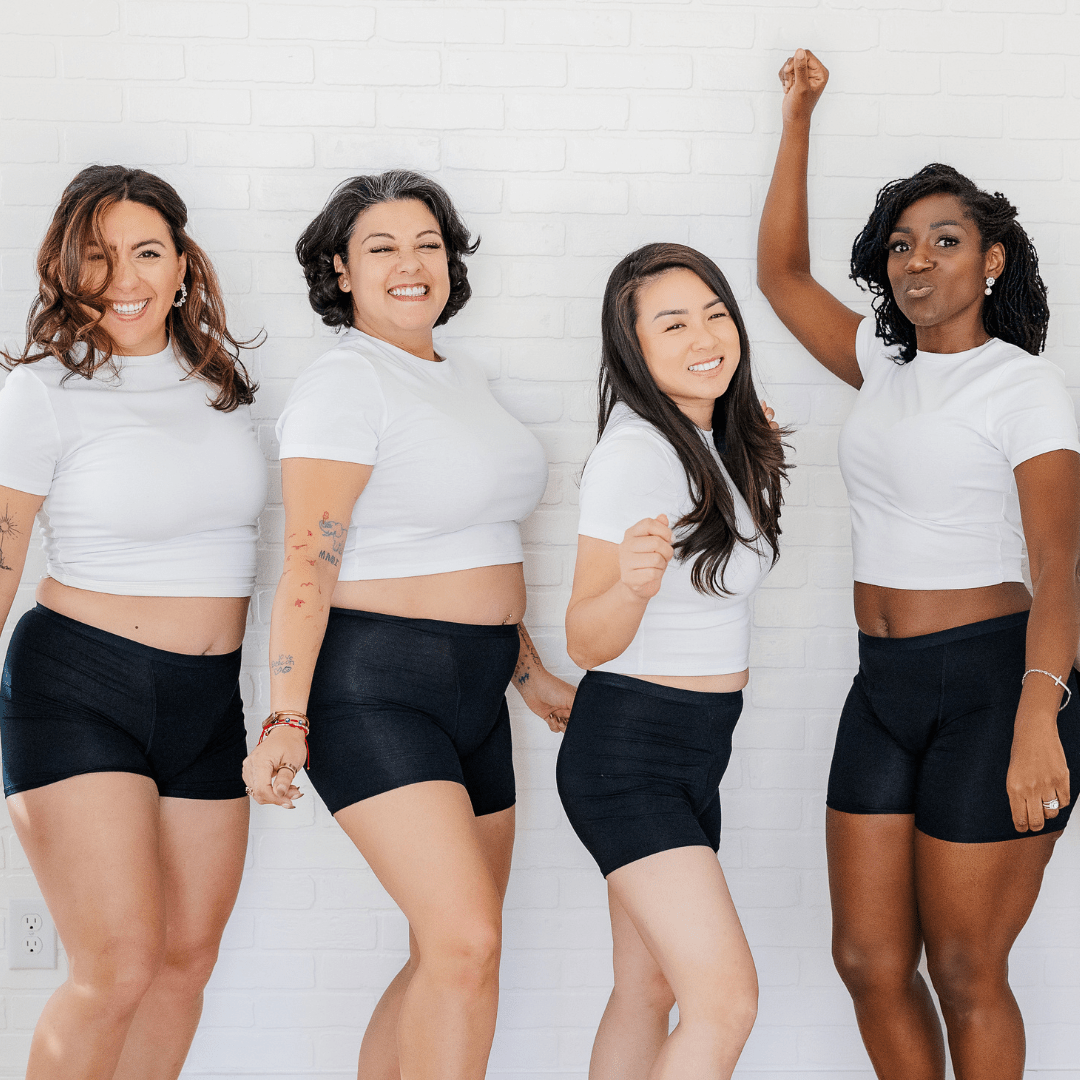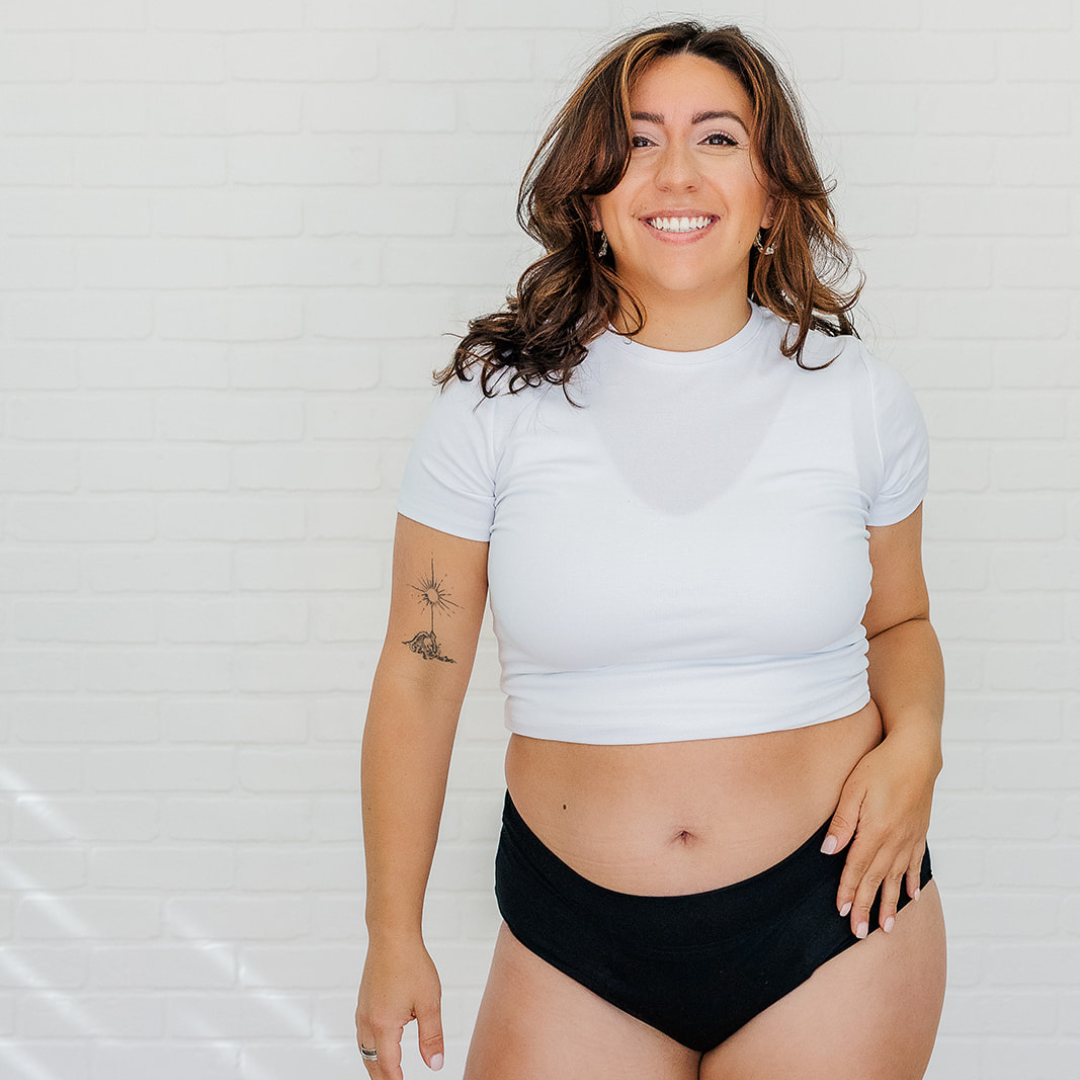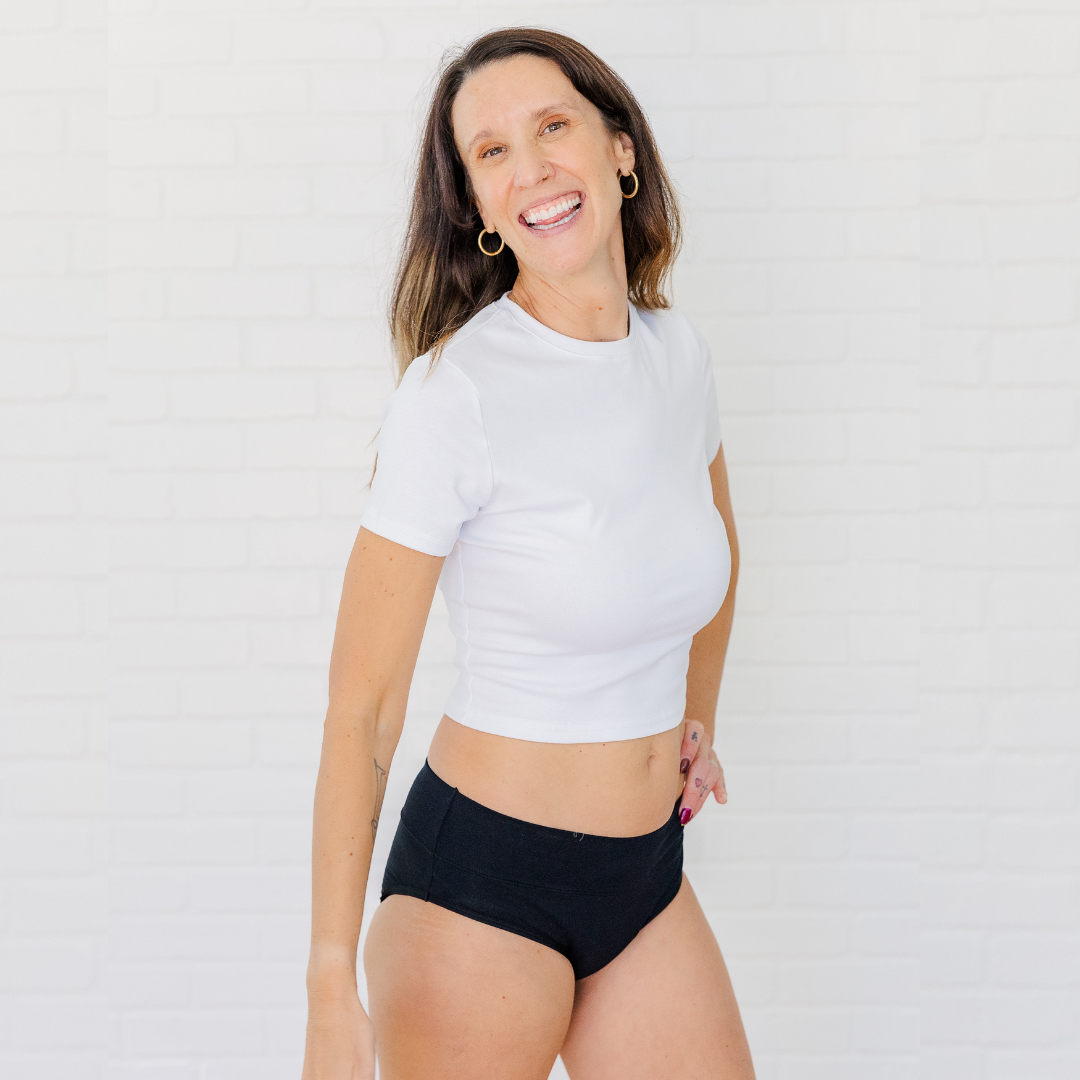The Connection Between Breast Cancer Awareness Menstrual Health
When we talk about breast cancer awareness, menstrual health doesn’t always come up. But here’s the thing: your period can actually tell you a lot about what’s going on with your hormones - and your hormones play a key role in breast health.
Let’s unpack how tuning into your cycle, tracking symptoms, and wearing the right menstrual brief isn’t just about comfort (though we’re big fans of that too) - it’s about understanding your body and protecting your long-term health.
Hormones, Periods & Breast Health: The Real Talk
Our menstrual cycles are driven by hormonal shifts - mainly estrogen and progesterone. These same hormones influence breast tissue development and changes.
So, what’s the connection?
-
High lifetime exposure to estrogen is linked to an increased risk of breast cancer.
-
Hormonal imbalances (like estrogen dominance) can affect both your cycle and breast health.
Being in tune with your menstrual cycle can give you clues about your hormone levels. Are your periods super heavy? Irregular? Painful? These may be signs that your hormones are out of whack - and it’s worth checking in with a healthcare provider.
Why Tracking Your Cycle Is More Than Just Counting Days
Cycle tracking isn’t just for people trying to get pregnant. It’s for anyone who wants to:
-
Spot unusual patterns
-
Monitor symptoms
-
Understand how hormones impact their mood, skin, energy, and even breast tenderness
At Fri Period, we offer a free printable cycle tracker because we believe this is one of the simplest (and most empowering) steps you can take for your health.
Plus, when you track symptoms like breast pain, fatigue, or unusual discharge throughout the menstrual cycle, you start to notice patterns. That can help you distinguish between normal cyclical changes and things worth getting checked out.
The Role of Period Underwear in Supporting Your Health
Let’s talk gear.
Wearing the right menstrual brief or period panties isn’t just about ditching the plastic-y pads and crinkly wrappers (though that’s a win). It’s about:
-
Reducing irritation from harsh materials
-
Avoiding hidden chemicals (many disposable products contain bleaches or fragrances and a whole host of other chemicals)
-
Supporting your body through every phase of your cycle
-
Offering leak protection with a discreet, moisture-wicking fabric and waterproof layer
Fri Period's reusable period underwear is made with breathable organic cotton and bamboo - no nasties here! These full coverage briefs are comfy, leak-proof, machine washable, and designed to keep you dry without disrupting your natural flora.
They’re even suitable for postpartum bleeding, bladder leaks, or first periods, because one pair should work for all life stages. And yep, and before you ask about care instructions - it couldn't be easier: cold water wash, no fabric softener, and tumble dry low.
Self-Checks: Make Them a Monthly Ritual
Just like you check your period tracker, add a quick breast self-exam to your monthly routine. The best time? A few days after your period ends, when hormone levels are more stable and breasts are less likely to be swollen or tender.
You're already tuned in to your body. This is just one more step toward full-on body literacy. Here’s how to do it:
-
Stand in front of a mirror with your shoulders straight and hands on hips.
-
Look for changes in shape, size, or skin texture.
-
Raise your arms and do the same.
-
Use your fingers in a circular motion to feel for lumps—first standing, then lying down.
It’s not about paranoia - it’s about awareness.
When to Talk to a Doctor
If you notice changes like:
-
A lump that feels different from the rest of your breast
-
Persistent pain in one spot
-
Discharge from the nipple (that’s not milk)
-
Changes in skin texture (like dimpling or puckering)
...don’t wait. Book an appointment. It might be nothing, but knowing your baseline through cycle tracking and self-checks makes it easier to notice when something’s off.
Real Talk: Breast Health Is Menstrual Health
Let’s stop pretending these systems don’t talk to each other. Your period isn’t a monthly nuisance - it’s a biofeedback machine. And your menstrual brief? It’s a support system.
Breast cancer awareness isn’t just about pink ribbons in October. It’s about giving ourselves the tools to listen to our bodies, all year round.
And hey, if you're gonna bleed every month, you might as well do it in comfort - and with a little less landfill guilt. Check out our period underwear here.
Conclusion: Empowerment Starts in Your Undies Drawer
So next time you pull on your favourite pair of comfy, leak-proof reusable panties (like these ones!), know this: you're not just managing your flow. You're tuning in. You’re building body awareness. You’re taking up space in a conversation that’s long overdue.
Because being informed about your cycle can help you take charge of your health and maybe even catch something early.
And that? That’s real power.
FAQs
1. Can period symptoms indicate hormonal imbalances linked to breast health?
Yes. Symptoms like irregular cycles or intense PMS may signal estrogen dominance or other imbalances that can affect breast tissue.
2. What makes Fri Period’s menstrual brief better for breast health awareness?
Our briefs are made without from toxic chemicals and endocrine disruptors found in many disposable products, helping reduce unnecessary hormonal exposure.
3. Is it necessary to track my cycle if I’m not trying to get pregnant?
Absolutely. Cycle tracking helps you understand patterns and notice changes that might signal underlying health issues.
4. How do I know if breast pain is normal or something to worry about?
Track when it occurs in your cycle. If it’s persistent, localized, or new, speak to your doctor.
5. What’s the best material for period underwear?
Look for breathable, chemical-free options like organic cotton and bamboo—like the ones at Fri Period!
